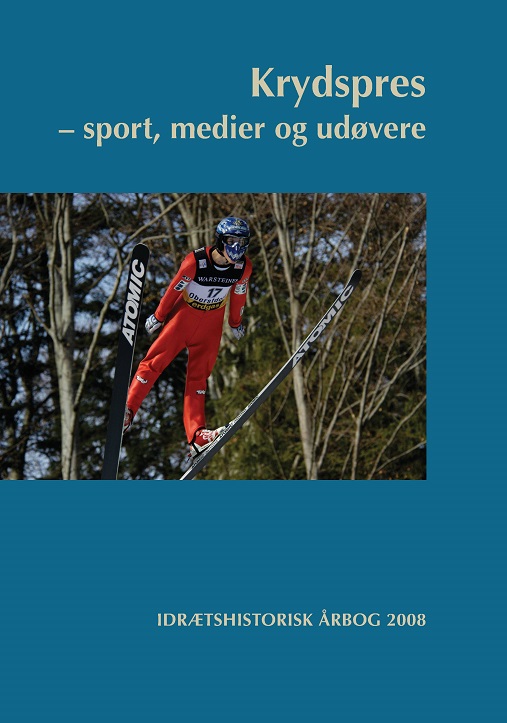Unge fodboldtalenters veje mod toppen - evolutionær eller strategisk talentudvikling?
DOI:
https://doi.org/10.7146/ffi.v24i1.31659Abstract
Med udgangspunkt i en kvantitativ undersøgelse af fodboldspilleres vej mod toppen diskuterer artiklen tendenser i dansk elitefodbolds talentudvikling. Der kigges nærmer på den relative alderseffekt blandt spillerne og på den evolutionære og strategiske udviklingstankegangen.
Mette Krogh Christensen: Young Football Talents’ Ways to the Top – Evolutionary or Strategic Talent Development?
During the next four years the Danish government intends to spend 40 million Dkr. on talent development within Danish top-level sport. Like many other countries Denmark has chosen to use many resources on talent development in top-level sport expecting that the investment will »strengthen the exposure and increase the knowledge of Denmark« (The Danish Ministry of Culture, 2007). For that reason questions concerning how talent development in Denmark is managed and which modes of thought form the basis of talent development in top-level sport are highly topical. In this paper we will explore two modes of thought in Danish top-level football talent development: an evolutionary and a strategic mode of thought. An evolutionary mode of thought about talent development is characterized by giving a high priority to broad groups of talents as long as possible. The idea is that young football talents have the opportunity to develop in their own pace, to move in their well-known environments and to find their own peak compe186 tence (or qualification) after which experienced coaches select the footballers that they find appropriate. A strategic mode of thought about talent development is concerned with selecting and thinning out the broad group of talent at a much earlier stage. The selection is carried out on the basis of precise and distinct criteria and principles with the purpose of narrowing down the number of talents to a strategically selected group who are then given optimal conditions of development. The paper presents a retrospective, quantitative cohort study of 635 Danish youth football talents’ ways to the top (i.e. the national teams) from 1991-2006. The results showed among other things that relatively few talents from U/16 and U/17 national teams make their debut on the All-Denmark team, and that there is a massive flow of talents on the U/17 and U/18 national teams, which indicates an evolutionary mode of thought among the youth national team coaches. The results also showed a relative age effect among the younger talents, which might indicate a strategic mode of thought based on maturation as a performance determinant. On the background of the results from the study a pivotal dilemma in the investment in talent development in top-level sport is discussed: the dilemma between evolutionary and strategic talent development.
Downloads
Published
How to Cite
Issue
Section
License
Forfattere, der publicerer deres værker via dette tidsskrift, accepterer følgende vilkår:
- Forfattere bevarer deres ophavsret og giver tidsskriftet ret til første publicering, samtidigt med at værket er omfattet af en Creative Commons Attribution-licens, der giver andre ret til at dele værket med en anerkendelse af værkets forfatter og første publicering i nærværende tidsskrift.
- Forfattere kan indgå flere separate kontraktlige aftaler om ikke-eksklusiv distribution af tidsskriftets publicerede version af værket (f.eks. sende det til et institutionslager eller udgive det i en bog), med en anerkendelse af værkets første publicering i nærværende tidsskrift.
- Forfattere har ret til og opfordres til at publicere deres værker online (f.eks. i institutionslagre eller på deres websted) forud for og under manuskriptprocessen, da dette kan føre til produktive udvekslinger, samt tidligere og større citater fra publicerede værker (se The Effect of Open Access).





